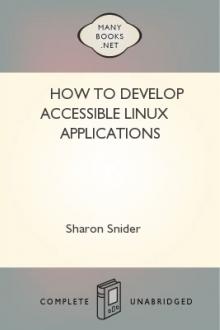On Liberty - John Stuart Mill (books to read this summer .TXT) 📗

- Author: John Stuart Mill
Book online «On Liberty - John Stuart Mill (books to read this summer .TXT) 📗». Author John Stuart Mill
It is not too much to require that what the wisest of mankind, those who are best entitled to trust their own judgment, find necessary to warrant their relying on it, should be submitted to by that miscellaneous collection of a few wise and many foolish individuals, called the public. The most intolerant of churches, the Roman Catholic Church, even at the canonisation of a saint, admits, and listens patiently to, a “devil’s advocate.” The holiest of men, it appears, cannot be admitted to posthumous honours, until all that the devil could say against him is known and weighed. If even the Newtonian philosophy were not permitted to be questioned, mankind could not feel as complete assurance of its truth as they now do. The beliefs which we have most warrant for, have no safeguard to rest on, but a standing invitation to the whole world to prove them unfounded. If the challenge is not accepted, or is accepted and the attempt fails, we are far enough from certainty still; but we have done the best that the existing state of human reason admits of; we have neglected nothing that could give the truth a chance of reaching us: if the lists are kept open, we may hope that if there be a better truth, it will be found when the human mind is capable of receiving it; and in the meantime we may rely on having attained such approach to truth, as is possible in our own day. This is the amount of certainty attainable by a fallible being, and this the sole way of attaining it.
Strange it is, that men should admit the validity of the arguments for free discussion, but object to their being “pushed to an extreme;” not seeing that unless the reasons are good for an extreme case, they are not good for any case. Strange that they should imagine that they are not assuming infallibility, when they acknowledge that there should be free discussion on all subjects which can possibly be doubtful, but think that some particular principle or doctrine should be forbidden to be questioned because it is so certain, that is, because they are certain that it is certain. To call any proposition certain, while there is anyone who would deny its certainty if permitted, but who is not permitted, is to assume that we ourselves, and those who agree with us, are the judges of certainty, and judges without hearing the other side.
In the present age—which has been described as “destitute of faith, but terrified at scepticism”—in which people feel sure, not so much that their opinions are true, as that they should not know what to do without them—the claims of an opinion to be protected from public attack are rested not so much on its truth, as on its importance to society. There are, it is alleged, certain beliefs, so useful, not to say indispensable to well-being, that it is as much the duty of governments to uphold those beliefs, as to protect any other of the interests of society. In a case of such necessity, and so directly in the line of their duty, something less than infallibility may, it is maintained, warrant, and even bind, governments, to act on their own opinion, confirmed by the general opinion of mankind. It is also often argued, and still oftener thought, that none but bad men would desire to weaken these salutary beliefs; and there can be nothing wrong, it is thought, in restraining bad men, and prohibiting what only such men would wish to practise. This mode of thinking makes the justification of restraints on discussion not a question of the truth of doctrines, but of their usefulness; and flatters itself by that means to escape the responsibility of claiming to be an infallible judge of opinions. But those who thus satisfy themselves, do not perceive that the assumption of infallibility is merely shifted from one point to another. The usefulness of an opinion is itself matter of opinion: as disputable, as open to discussion, and requiring discussion as much, as the opinion itself. There is the same need of an infallible judge of opinions to decide an opinion to be noxious, as to decide it to be false, unless the opinion condemned has full opportunity of defending itself. And it will not do to say that the heretic may be allowed to maintain the utility or harmlessness of his opinion, though forbidden to maintain its truth. The truth of an opinion is part of its utility. If we would know whether or not it is desirable that a proposition should be believed, is it possible to exclude the consideration of whether or not it is true? In the opinion, not of bad men, but of the best men, no belief which is contrary to truth can be really useful: and can you prevent such men from urging that plea, when they are charged with culpability for denying some doctrine which they are told is useful, but which they believe to be false? Those who are on the side of received opinions, never fail to take all possible advantage of this plea; you do not find them handling the question of utility as if it could be completely abstracted from that of truth: on the contrary, it is, above all, because their doctrine is “the truth,” that the knowledge or the belief of it is held to be so indispensable. There can be no fair discussion of the question of usefulness, when an argument so vital may be employed on one side,





Comments (0)